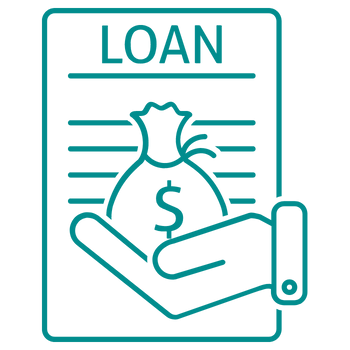
On July 13, 2022 the U.S. House of Representatives Small Business Subcommittee on Oversight, Investigations, and Regulations held a hearing titled: “Fintech and Transparency in Small Business Lending.” Fintech is the technology and innovation that are changing the way banking and lending are done. Traditional loans from traditional banks take weeks to complete, not hours or days. Over the last decade online small business lenders have popped up to lend money faster and easier, many times obscuring the details of the contracts in which small business owners are entering. This has created problems with small business owners that need cash but might not understand the full terms of their loan product due to no fault of their own.
The hearing focused on the transparency, or lack thereof of fintech and their impact on small business lending, and the importance of having laws that protect responsible small business lending. Some fintech loans subject small business owners to much higher interest rates and other terms that cause default.
Diana Patterson, Regional Director of the Small Business Development Center in Minnesoata’s Twin Cities testified that small business owners she worked with didn’t understand the financing terms of the loans they received from fintech companies until they met with her. The lack of transparency is troubling for small businesses. For example, she said that small businesses, most of whom act as consumers, are used to seeing interest rates at 5.5%-6.5% Annual Percentage Rate (APR) over the course of a loan. Fintech borrowers see a number from 3.5%-4.5% and assume that is their APR, but it isn’t. What they don’t realize is that some fintech rates are calculated on a daily basis. This can be a monthly interest rate of 55-60% and not 4%. Fintech loans may be faster to obtain, but the cost of some fintech loans are significantly higher. The repayment terms tend to be very short at 6-12 months versus several years for traditional loans, which makes the hit to the monthly cash flow much higher and the payments too large for a small business to digest over a short period of time.
Sean Salas, CEO of Camino Financial, testified that responsible small business lending practices are important because without them, small business owners may sign up for loans that can land them in a debt trap. According to Salas, the most critical metric for loans is the APR, which is comparable across different products. Salas believes every lender should use their best commercial efforts to disclose the APR. States such as California and New York have adopted truth-in-lending laws that have made loan terms easier to understand for clients*. His company has not been hindered at all by disclosure laws in New York and California and has found that by having responsible business lending practices under law creates a more fair and competitive marketplace which benefits the borrower.
Dr. John Griffith is a professor at the University of Texas, specializing in investigations of financial fraud. Dr. Griffith co-wrote a paper titled “Did FinTech Lenders Facilitate PPP Fraud?”. Dr. Griffith testified that fintech lenders were the top 12 lenders with the most misreporting for the Paycheck Protection Program (PPP), while traditional banks had significantly lower levels of misreporting. Dr. Griffith believes that the PPP did not require robust verification requirements, which is what led to the fraud and there is a need for more robust requirements, especially with the increased adoption of digital financial technology. He said that the PPP program was an ineffective use of taxpayer dollars, and was not the best plan to save jobs since many jobs were still lost. Current enforcement programs have not been effective at identifying and punishing the bad actors because of the lack of funding, little public transparency with the data collected for the PPP program, and unclear enforcement policy in the Consumer Financial Protection Bureau (CFPB).
*Since 2015 the Responsible Business Lending Coalition (RBLC) has built a network of nonprofit and for-profit lenders, investors, and small business advocates that share a commitment to innovation in small business lending and serious concerns about the rise of irresponsible small business lending practices.*CAMEO has worked with the RBLC to pass the nation’s first truth-in-lending legislation in California, SB 1235. Regulations go into effect December 9, 2022. As mentioned above, states are passing their own bills, some of which are not as transparent as others and don’t require APR reporting. CAMEO and our RBLC colleagues urge fintech in the U.S. Congress pass Representative Nydia Velazquez’s Small Business Lending Disclosure Act, which requires fintech to provide their borrowers with the APR, among other information that will help increase transparency in loan terms. Additionally, Congress should give the Consumer Financial Protection Bureau the authority and funding to go after bad fintech actors.
Written by Addison Peterson.
